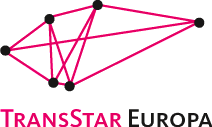Since 1986 the International Literary Festival Vilenica takes place annually, normally in the first half of September at different locations across Slovenia. Different Slovenian and foreign authors are invited to present their work within the framework of the festival.
The topic of this year’s already 28th festival is Navdih meja (Borders as Inspiration). Which country could better internalize this topic than Switzerland – a country whose literature is composed in four different languages. For this occasion, in May of 2013, an anthology of contemporary Swiss literature with the appropriate title Gluscht (Swiss German for craving) was published. The diversity of literary creation is presented in the book in all four languages spoken in Switzerland as well as the great influences and contributions made by immigrants.
The reading on the 13th of September in Ljubljana was another side event of the Literary Festival Vilenica to which Lukas Bärfuss, Arno Camenisch, Michel Layaz, Pietro De Marchi and Ilma Rakusa were invited to read from their latest literary works and talk about issues with respect to borders. The Slovenian TransStar group of course did not want to miss this event.
We met in front of Cankarjev dom (the cultural and convention center in the center of Ljubljana which is the largest cultural facility of Slovenia) and together we went inside, to the top of the CD where the Club CD hall is located and where the reading took place. The audience slowly made its way to its seats and the event was ready to begin.
As an introduction to Swiss literature all authors read an excerpt from their texts in the language the original texts were written in. In this way we were able to listen to texts in four languages: in German (Lukas Bärfuss, Ilma Rakusa), in French (Michel Layaz), in Italian (Pietro De Marchi) and Raetho-Romanic (Arno Camenisch).
A discussion followed the readings which were moderated by Dr. Vesna Kondrič Horvat. The core topic was borders which at the same time was the central theme of this year’s festival in Valenica. Guests talked about their experiences and feelings in this respect; everybody agreed that the designation „Swiss author“ seemed rather problematic and strange and that they in the end did not find the designation appropriate. One speaks and writes in the language one grew up with and of which one has a command as a native speaker. It was emphasized that multi-lingualism is receding and that Swiss persons stemming from different regions of the country are increasingly speaking English amongst each other. Attempts at introducing a common language (amongst others also a Romanic one) failed, reason being either of practical nature or as a result of deliberate resistance of the speakers. During the discussion the authors created a very pleasant atmosphere and it was very interesting to observe how they nonetheless had the same opinion and also were able to assess themselves and their native language with respect to the outer and inner borders in a similar manner despite completely different backgrounds and places of residence. We also had the (very rare) opportunity to hear the Raetho-Romanic language. Both Ilma Rakusa and Arno Camenisch however emphasized that Raetho-Romanic was a language „for the soul“, the number of people speaking this language is not growing. One has to decide to learn this language with his/her heart, to carry it in one’s heart and care for it. The literary happening continued at the castle of Ljubljana.
Here are some photos.
by Irena Smodiš and Alenka Lavrin


